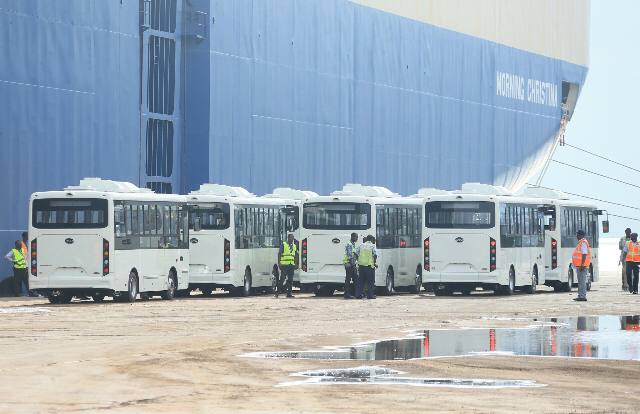BasiGo ships in 100 more electric buses

BasiGo an e-mobility start-up headquartered in Nairobi has boosted its fleet with 15 new electric buses.
The buses are currently being cleared at the Mombasa port and according to the Kenya Ports Authority; this is the largest consignment of electric buses to the region as Kenya looks to transition to clean energy.
Speaking to the Star, BasiGo’s head of business development, Samuel Kamunya confirmed the arrival saying more are o the way.
“The buses arrived in the country through the Port of Mombasa and we are expecting to receive more within the first quarter of 2023. We aim at delivering 100 electric buses by the first quarter of 2023,” Kamunya said.
He said the latest consignment would be assembled from next week before being released into the market in January.
The company has already received over 100 reservations from customers, and recently announced partnerships with KCB Bank and Family Bank to provide up to 90 per cent financing to those keen on purchase an electric bus.
Kamunya said the greatest barrier to electric bus adoption in emerging markets is the high upfront cost, which limits operators from running the Pay As You Drive (PAYD) model.
“The only way to make these electric buses affordable in the country is through the PAYD model,” He added.
In a past statement, the company said that operators using the payment model will pay the company a Sh20 per kilometre subscription fee which includes leasing of the E-Bus battery, charging at BasiGo charge stations, and comprehensive service and maintenance provided by BasiGo.
The fee will be less with approximately Sh10 compared to Nairobi bus operators’ who are currently paying an estimated Sh30-50 per kilometre for diesel fuel alone due to high fuel prices.
The company is already deploying high-power, DC fast-charging stations at strategic locations across Nairobi to support this expanded fleet.
It said that all buses delivered in 2023 will be locally assembled, and aims to have over 1,000 electric buses deployed in Kenya by the end of 2025.
This comes at a time when the country is racing towards reduced carbon emissions in a bid to address climate change concerns.






